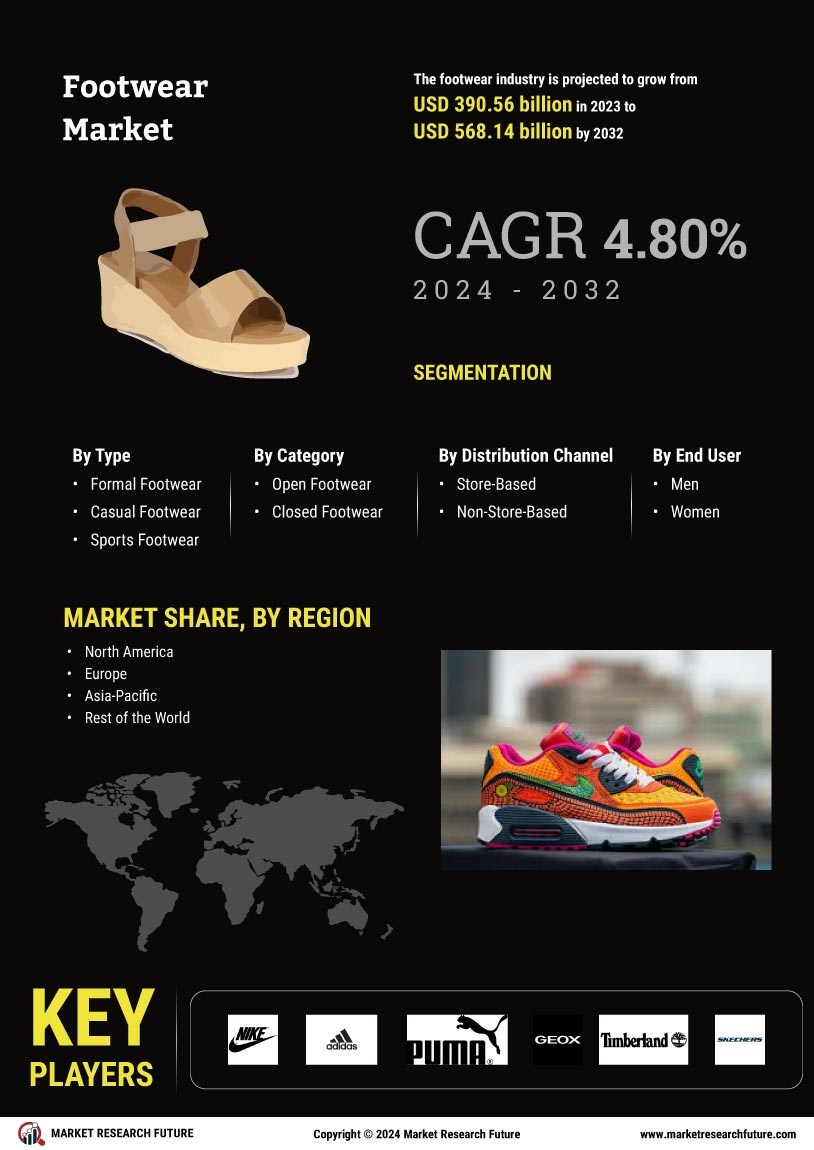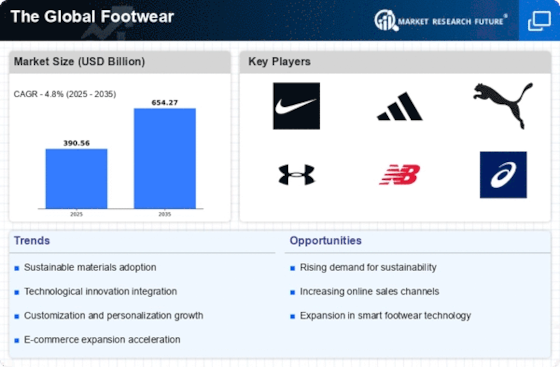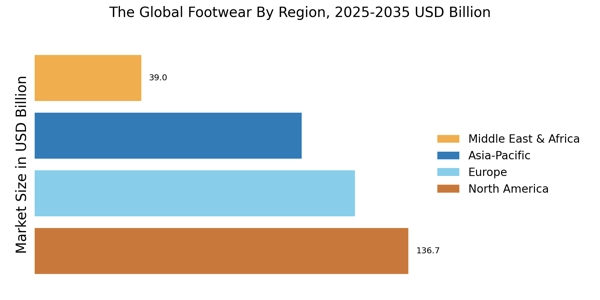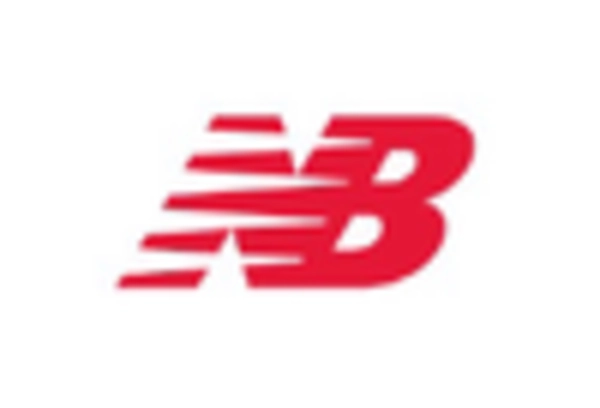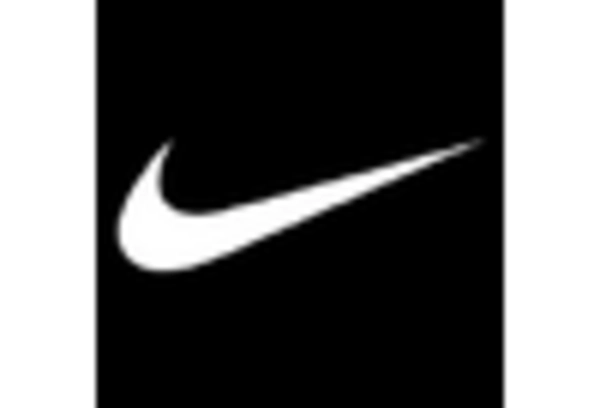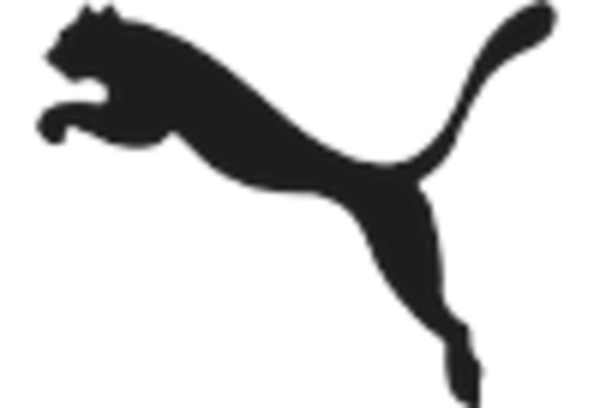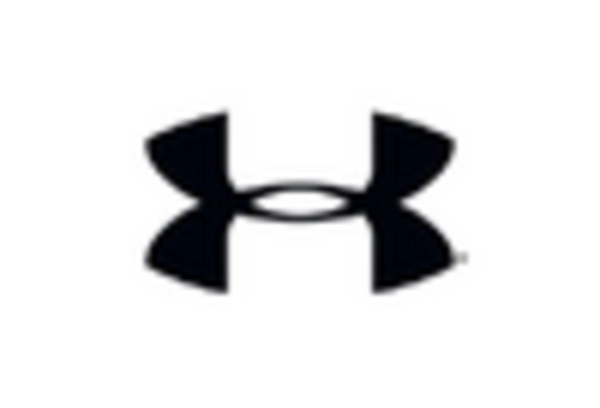E-commerce Expansion
E-commerce expansion is a driving force in The Global Footwear Industry Trends. The convenience of online shopping has transformed consumer purchasing behaviors, with a significant increase in online sales of footwear. In 2025, e-commerce is projected to account for over 30% of total footwear sales, highlighting the shift towards digital platforms. This trend is further accelerated by advancements in technology, such as augmented reality and virtual fitting rooms, which enhance the online shopping experience. Brands are increasingly investing in their online presence and digital marketing strategies to capture the attention of tech-savvy consumers. Additionally, the rise of social media influencers and targeted advertising plays a crucial role in driving traffic to e-commerce sites. As the digital landscape continues to evolve, it is likely that e-commerce will remain a dominant channel for footwear sales in The Global Footwear Industry.
Technological Advancements
Technological advancements play a pivotal role in shaping The Global Footwear Industry. Innovations in materials, such as lightweight composites and breathable fabrics, enhance comfort and performance. Moreover, the integration of smart technology, including fitness tracking and temperature regulation, is gaining traction among consumers. In 2025, the market for smart footwear is projected to reach approximately 2 billion USD, indicating a growing interest in tech-enhanced products. Additionally, 3D printing technology is revolutionizing production processes, allowing for rapid prototyping and customization. This shift not only reduces waste but also caters to the increasing demand for personalized footwear solutions. As brands adopt these technologies, they are likely to attract a broader consumer base, thereby driving growth in The Global Footwear Industry.
Rising Health Consciousness
The rising health consciousness among consumers significantly influences The Global Footwear Industry. As individuals become more aware of the importance of physical activity, there is a corresponding increase in demand for athletic and performance-oriented footwear. In 2025, the The active footwear market, particularly athletic and performance-oriented shoes, is expected to account for over 60% of total market share in 2025, reflecting a shift towards healthier lifestyles. This trend is further supported by the growing popularity of fitness activities, such as running and gym workouts, which necessitate specialized footwear. Brands are responding by developing innovative designs that prioritize comfort, support, and durability. Furthermore, the emphasis on health and wellness is likely to encourage consumers to invest in high-quality footwear, thereby propelling market growth. The intersection of health awareness and footwear choices presents a compelling opportunity for brands within The Global Footwear Industry.
Urbanization and Lifestyle Changes
Urbanization and lifestyle changes are key drivers of The Global Footwear Industry. As more individuals migrate to urban areas, there is a notable shift in consumer preferences towards stylish and functional footwear that complements fast-paced city living. The demand for casual and athleisure footwear is on the rise, with projections indicating that this segment could grow by 8% annually through 2025. Urban dwellers often seek versatile footwear that can transition from work to leisure, prompting brands to innovate in design and functionality. Additionally, the increasing influence of social media and fashion trends further shapes consumer choices, leading to a heightened interest in trendy footwear options. This dynamic environment presents both challenges and opportunities for brands aiming to capture the attention of urban consumers in The Global Footwear Industry.
Sustainability and Ethical Practices
Sustainability and ethical practices are becoming increasingly important in The Global Footwear Industry. Consumers are now more inclined to support brands that prioritize environmentally friendly materials and ethical production processes. In 2025, it is estimated that sustainable footwear could represent up to 15% of the overall market, reflecting a significant shift in consumer values. Brands are responding by incorporating recycled materials, reducing carbon footprints, and ensuring fair labor practices. This trend not only appeals to environmentally conscious consumers but also aligns with global efforts to combat climate change. As sustainability becomes a core value for many brands, it is likely to influence purchasing decisions and foster brand loyalty. The emphasis on ethical practices presents a unique opportunity for companies to differentiate themselves in the competitive landscape of The Global Footwear Industry Analysis.
The global shoe industry continues to experience steady growth driven by increasing urbanization, rising disposable incomes in emerging markets, and evolving consumer preferences toward both athletic and sustainable footwear options.
